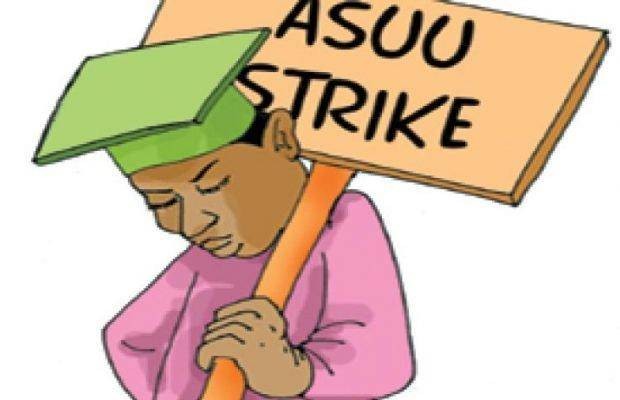
Education stakeholders are divided on the decision taken by the Nigerian Union of Teachers, NUT, to commence a solidarity strike in support of striking university lecturers.
While those in support of the solidarity strike are of the view that it would draw the attention of the international community to the state of Nigerian education, those in opposition say shutting down the education system is misplaced priority on the part of NUT.
Rising from its National Executive Council, NEC, meeting in Abuja on September 26, NUT threatened to join ASUU members in a solidarity strike. It gave the Federal Government two weeks to meet ASUU’s demands or face a total strike that would paralyse the country’s education sector.
Worried by the possible effect of an NUT strike, the Supervising Minister of Education, Nyesom Wike, had scheduled to meet with leaders of the union to find out what their problem is with the ASUU strike.
Receiving House of Representatives Committee on Education members, who were on an oversight function to the ministry on Monday, Wike said: “We just heard that the NUT is threatening to go on strike because of ASUU, and we are wondering what the ASUU strike has got to do with the NUT.
“When states failed to pay the minimum wage for teachers and they went on strike, ASUU did not join them. The NUT takes care of basic and secondary teachers’ interests, so it has no business with ASUU. I believe when we meet on Wednesday, we will sort it out.”
Speaking exclusively to Vanguard Learning, the NUT National President, Mr. Michael Alogba said: “We have a NEC meeting next week. The decision to embark on strike was taken by the NEC, and can only be rescinded by the NEC.
Grounding entire sector
“The Minister of Labour and Productivity met with us last week and gave us a situation report from government’s end. It is the result of this meeting we will take to the NEC. But we never had any doubt that a solidarity strike would move the government to take ASUU much more seriously. Grounding the entire sector is sure to get the attention of the international community and as such, put the Federal Government on its toes. That is the power in democracy.”
Calling on other unions in the country to emulate NUT and NUPENG, the National Coordinator, Education Rights Campaign, Mr. Hassan Soweto, tasked the NUT to ensure that they are not arm-twisted by gov ernment.“Though shutting down the knowledge sector isn’t the best thing to do, we endorse this solidarity strike because we want the President to do the right thing. We are convinced that all concerned stakeholders who want the sector to move forward would join in demonstrating our dissatisfaction.”
Pointing out that one day of action is a good starting point that would spur others to do same, Soweto commended NUT and NUPENG for reviving the idea of solidarity strike which is acceptable in global unionism.
Opposing the strike action being proposed by NUT, an education policy consultant, Mr. Wale Samuel, rather called on government, ASUU and NUT to reason together and find a solution to the crisis.
“Stakeholders need to give room for honest and open dialogue which, of course, would naturally revolve around the sincerity of government to provide support within available funds and the need for ASUU and NUT to realise that strike may never secure all demands.
“There is the need for them to also bear in mind that, ultimately, these strikes would equally take its toll on the end product of education, in this case, the students.”
Agreeing with him is the President, National Association of Nigerian Students, NANS, Yinka Gbadebo, who said the proposed solidarity strike would rather escalate an already delicate matter.
“Showing solidarity doesn’t require shutting down the education system as that is fuelling an already delicate and dangerous situation. NUT can show support or concern by engaging government in meaningful talks that would lead to the resolution of the crisis.
“Agreed that all isn’t well with the system but we can’t have a crash solution to years of rot and neglect in the education system.”
For a parent who declined to give her name, the strike is a misplacement of priority as, rather than going on a strike that does not affect them in anyway,
“NUT should be doing everything possible to bring the primary and secondary schools to their past glory.”

